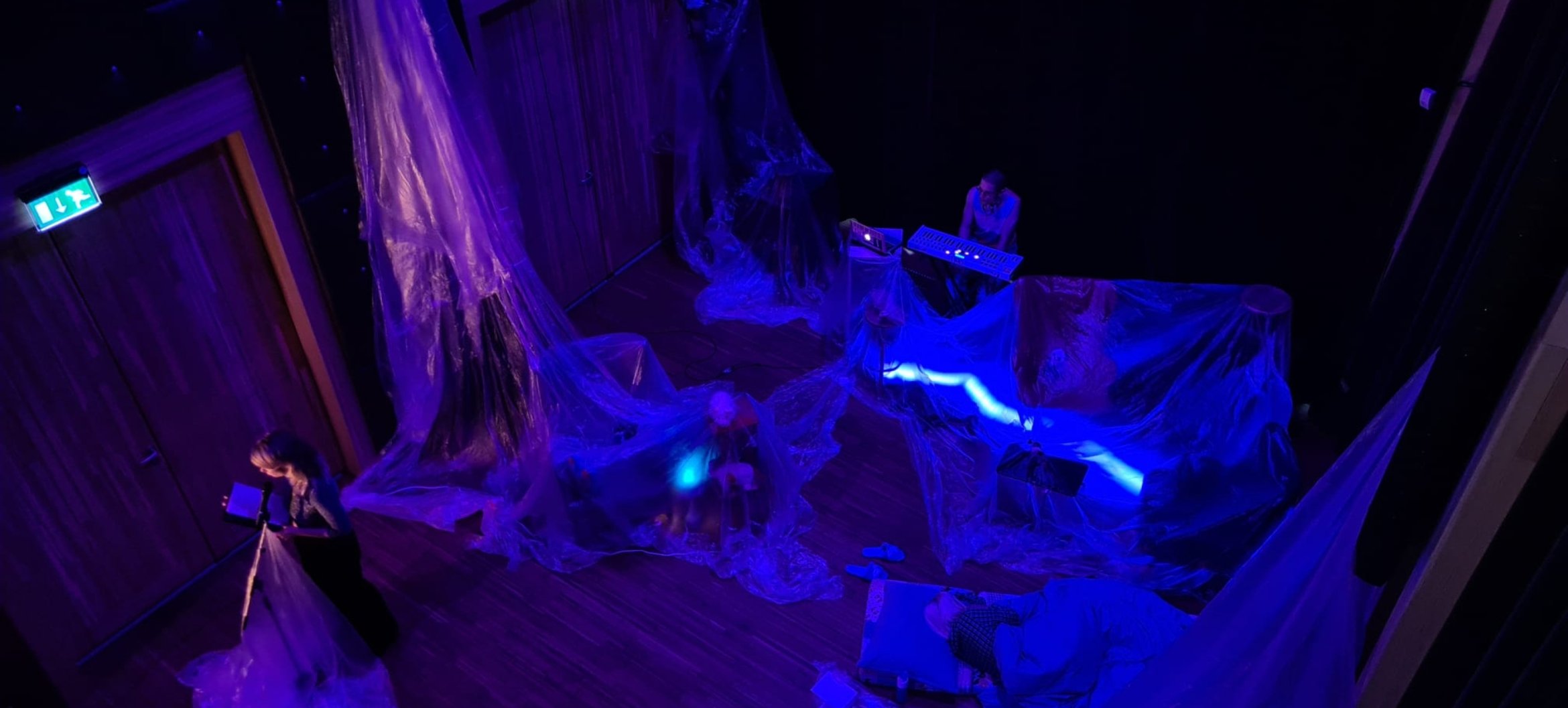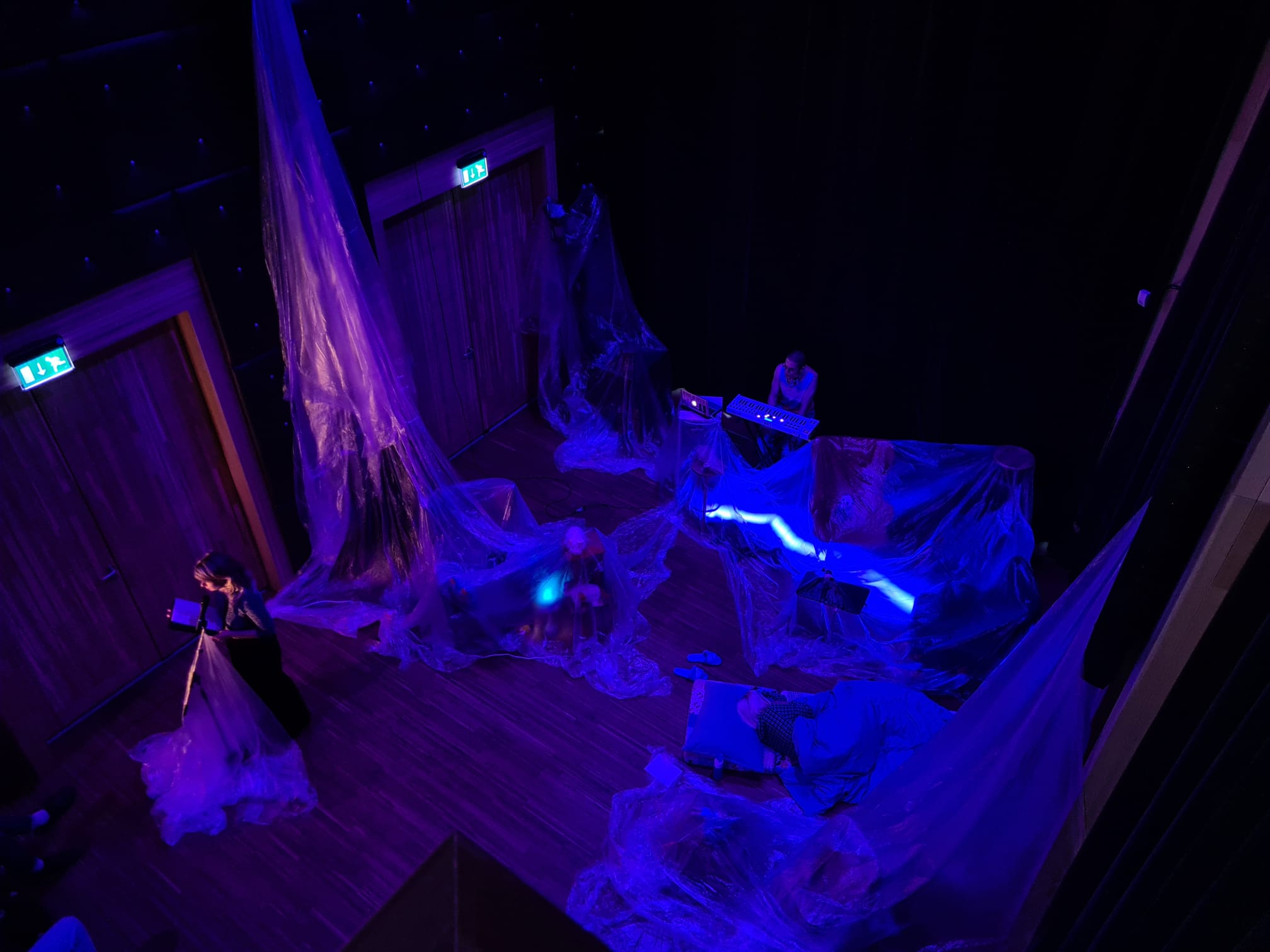Where the Sheep Go
- Creative Writing
The first year of Creative Writing involves lots of subjects, so that you are completely immersed in the world of writing. One of these subjects is Programme Creation, in which Hannah Chris Lomans teaches you how to organise a literary event. Lisia, one of the students, talks about what it is like to organise the literary event, 'Where the Sheep Go', with her class.

Lisia: "We were asked to organise a literary event from scratch. So, we started by brainstorming about a theme. Our first idea was the subconscious. Once we'd chosen this theme, we were divided into three groups: a programme, production and PR group. These three groups organise everything involved in the event. Production arranges the location, materials and the allocation of the money. PR ensures that the event is publicised. The programme group, my group, sorts the programme content and contacts the speakers.
Sleep cycle as inspiration
As the programme group, we were first up to specify the idea. Our idea was a programme inspired by the sleep cycle. In the programme, different speakers reappear several times to reflect the different sleep cycles: all the speakers appear three times during the evening.
A sleep cycle consists of different parts, which is how we chose the speakers. Our theme-oriented concept left the authors free to work within that theme:
- When you go to sleep, you start in the slumber phase. Inspired by this phase, we invited Creative Writing alumnus Rosa Vlogman. Rosa's performance features meditation. A sense of calm falls over the audience, as if you are about to go to sleep.
- You should then fall asleep (although we obviously hope that nobody will!). In the second phase, you enter light sleep. In that phase, you are still reasonably alert and can wake up. Now it's time for a dynamic performance by Koen Frijns. We felt this would be a nice contrast with the calm of the first phase.
- For deep sleep, we invited Suzanne Reedijk. She is another alumnus who talks about the feeling of that sleep phase.
- Finally, there is REM sleep, also called dream sleep. Asha Karami has lots of dream notes that she has published and which she uses in her performance. Asha literally presents a dream diary.
Music
We also wanted to do something with music, so we asked second-year Music Theatre student Felix Draisma to play in the evening. He composes music. I met him during the interdisciplinary Pleasure Island project.
Surprise
There was a surprise too: one of my classmates did something on stage. Watch the video impression here:
It feels professional to arrange it all yourself."
Organising this programme was very educational, because you work together with your classmates in a different way. You're busy organising rather than responding to each other's texts. You learn a lot about taking the initiative and task allocation.

Lisia about her Creative Writing course
I've enjoyed the first year. We have a great class and really support each other. We are honest in our feedback, but we are also enthusiastic about everyone's work. After taking many different subjects - reports, poems, short stories, visual art, history of literature - from next year we'll have more input into choosing our own programme of subjects and projects. We've worked a lot together and written things ourselves.
It's really fun to stand in front of an audience with your own text."
I've always written, but I never thought about taking it further because I have a theatre background. After my preparatory Theatre course in Weesp, I didn't get through the various theatre school auditions, but I'm glad that I can still do a creative course. In Creative Writing, you do subjects like playwriting, and you also get the opportunity to perform, for example in spoken word evenings.
Besides teaching, the lecturers are writers themselves. Which is great. They are future colleagues and take us seriously. It's great to experience that the lecturer doesn't necessarily have more authority or knowledge than us.
The aim is to experiment. You have a lot of subjects and assignments in the first year. There's a lot of freedom. The assignments are a way to get you to make your own work."
My tip for first-year students: enjoy writing. Give your own twist to the assignments. You're not writing for the lecturer, but for yourself."


